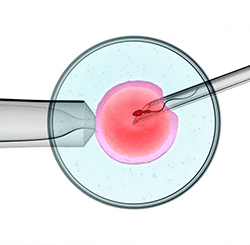We will do our best to help you become parents!
Often, specialists of the Stork Service surrogacy center answer questions related to methods of fertilization. Indeed, the issue is very relevant, given that in each case we may recommend different techniques.
Classical methods of fertilization
1. Artificial insemination is the laboratory method closest to the natural method of conception. It involves the delivery of sperm to the cervical canal, shortening the path of passage of the spermatozoon, after which the fertilization of the ovum is carried out in the uterus itself. In view of the low effectiveness of this method, other methods that significantly increase the chance of a quick and effective pregnancy are applied.




